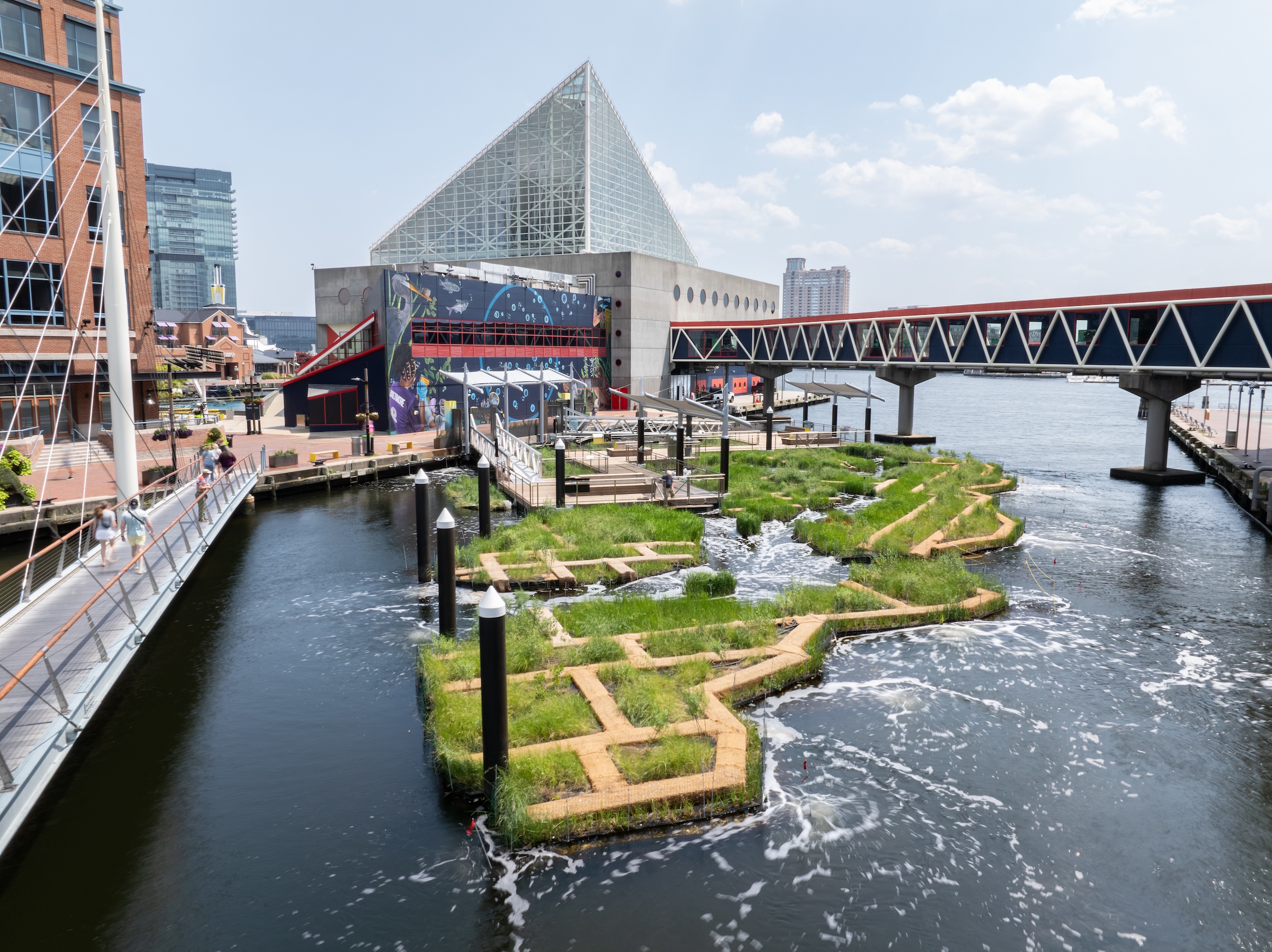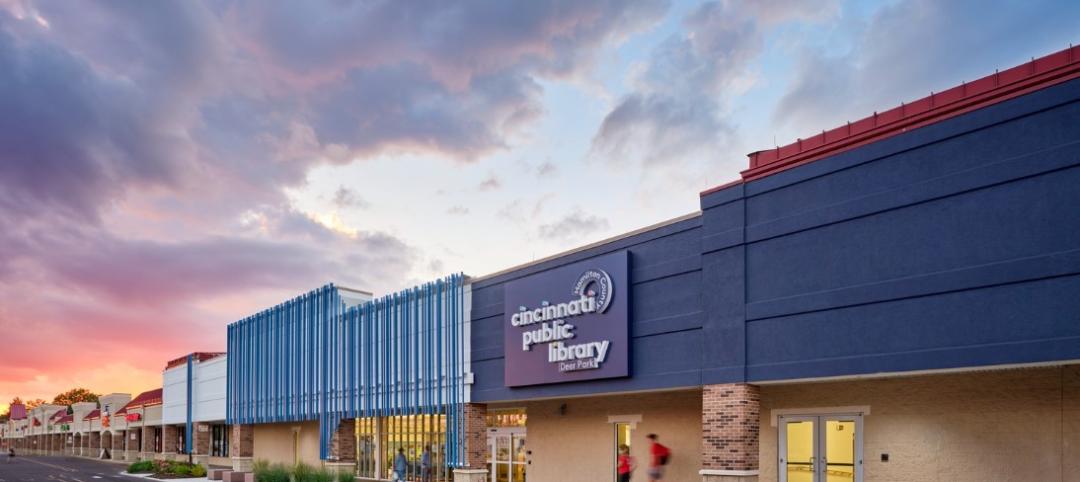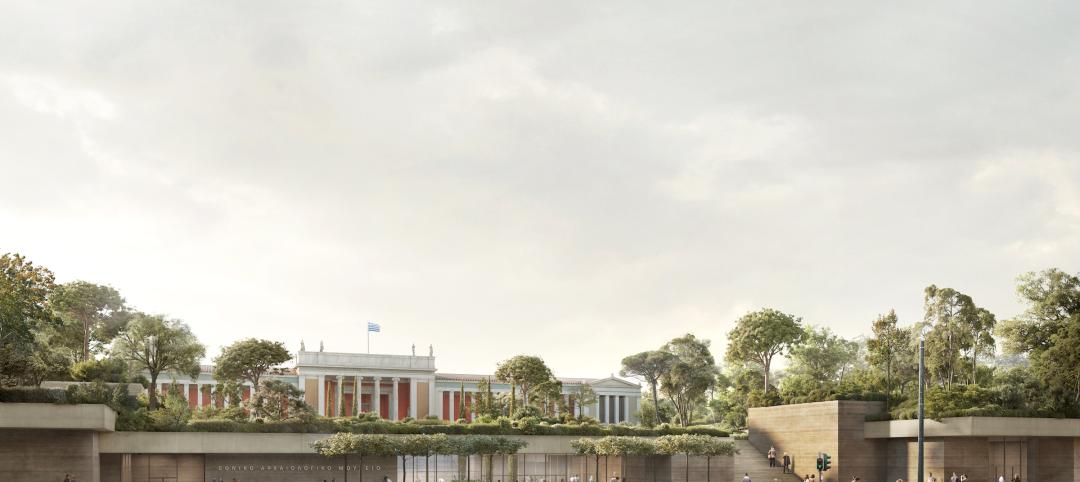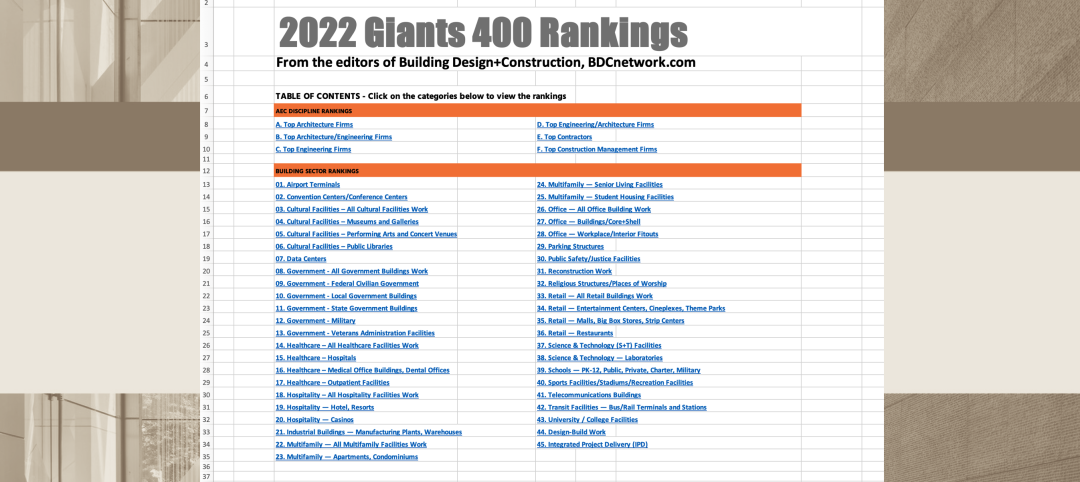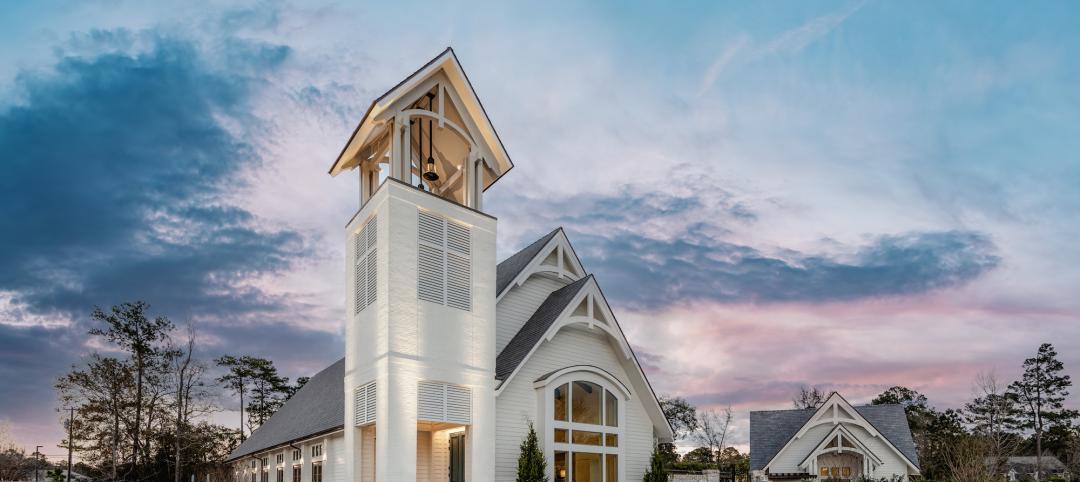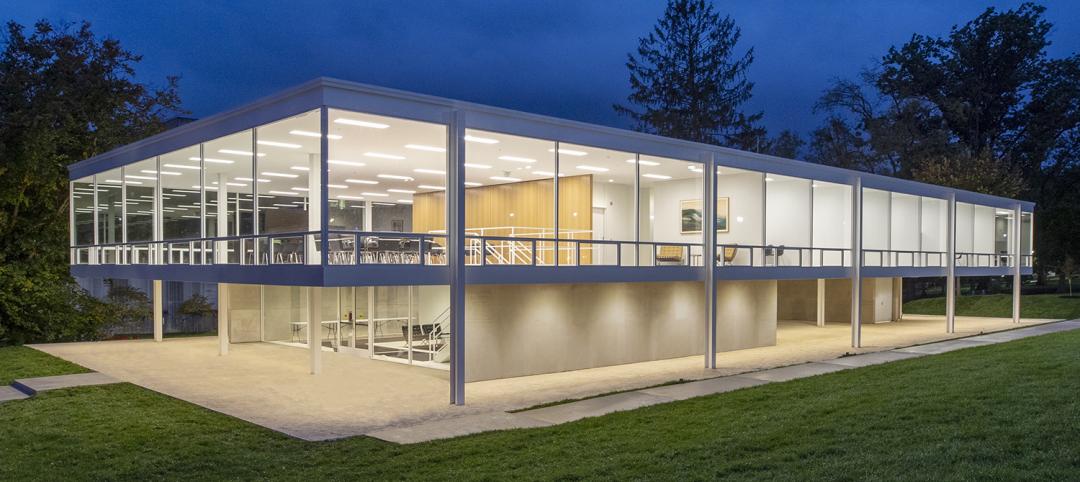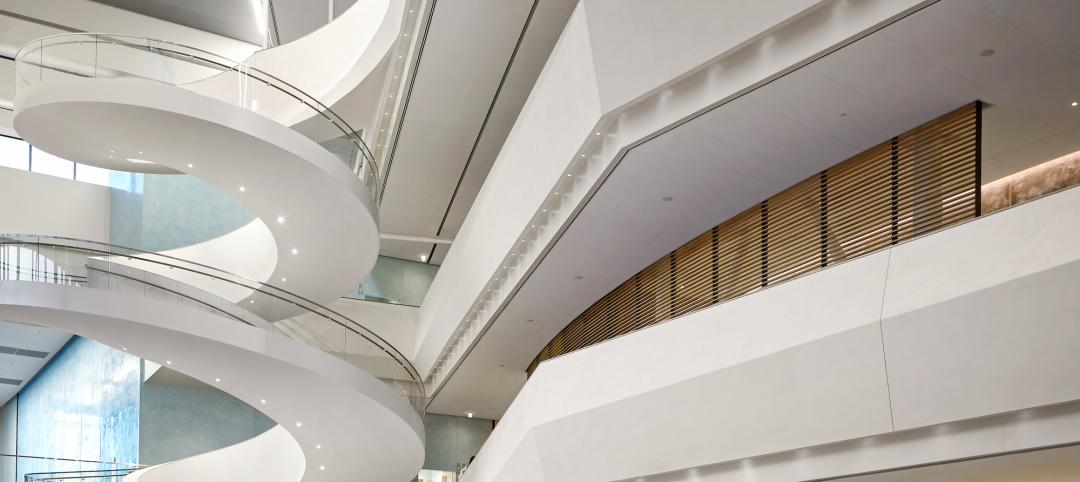The National Aquarium in Baltimore has opened the National Aquarium Harbor Wetland, a 10,000-sf floating wetland that mimics the Inner Harbor’s original Chesapeake Bay tidal marsh habitat. Located between Piers 3 and 4 on Baltimore’s Inner Harbor, the $14 million project features more than 32,000 native shrubs and marsh grasses.
With Ayers Saint Gross as the architect of record and Whiting-Turner as the construction contractor, the project is based on sustainable innovations developed by the Aquarium’s conservation and exhibit fabrication teams. At the project’s start about a decade ago, Studio Gang participated as the original concept architects.
“Harbor Wetland is the culmination of 12 years of research, innovation, and determination,” Aquarium president and CEO John Racanelli said in a press statement.
Ayers Saint Gross worked with the National Aquarium to design a sustainable, high-performing floating wetland intended to restore natural habitats and improve biodiversity and water quality. The project aims to reverse years of environmental degradation while creating a renewed, thriving ecosystem. The design features layered topography, with planting surfaces at tiered elevations to promote a variety of microhabitats and attract a greater diversity of species to the area.
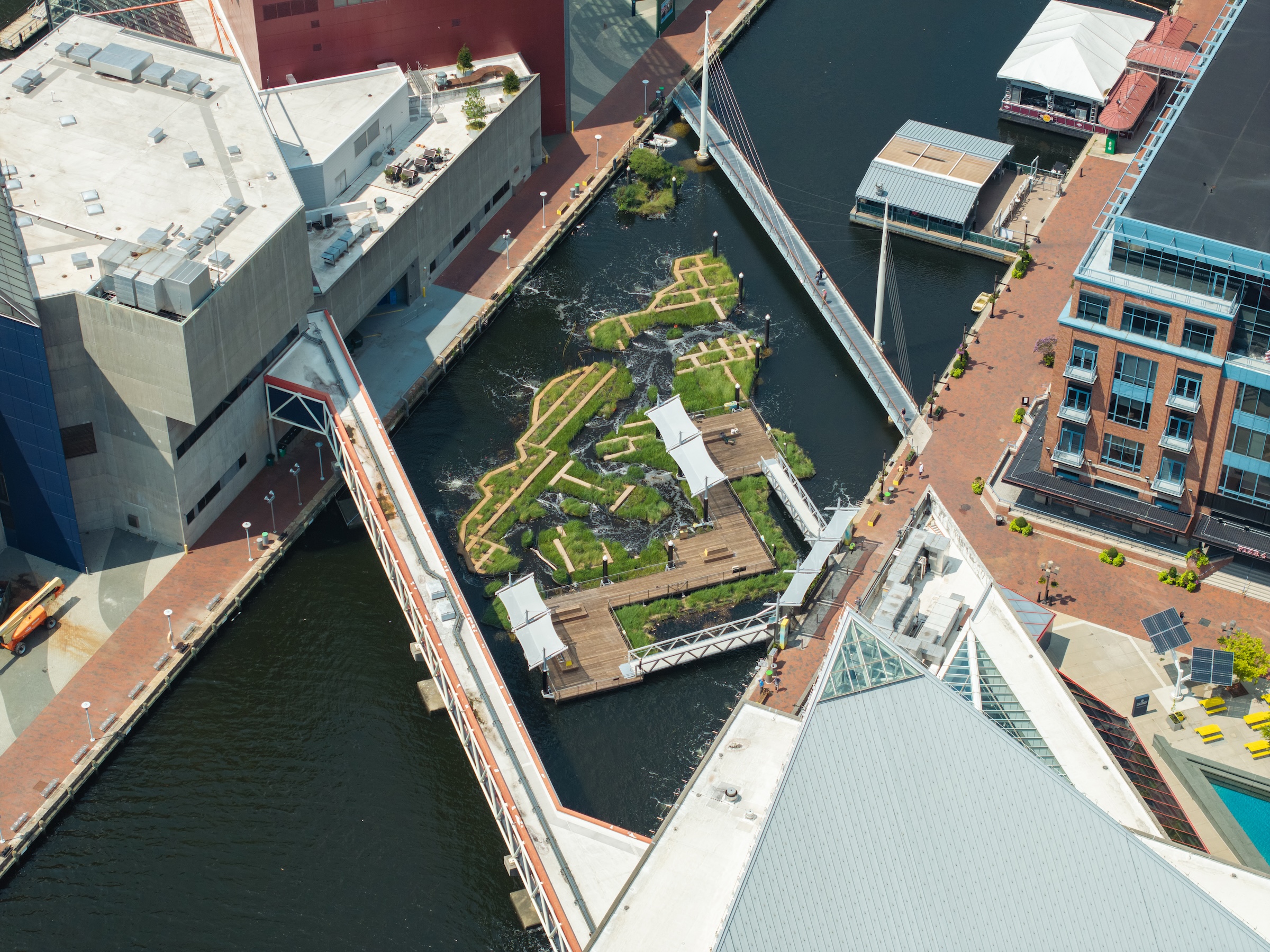
Free and open to the public, the constructed wetland serves as a floating classroom for the community. Interpretive signage allows guests to learn about the wetland, the species drawn to it, seasonal changes, and the surrounding harbor.
Featuring docks, walkways, and shade cover, the habitat is composed of recycled plastic matting planted with native tidal wetland shrubs and grasses, whose roots will grow down into the water. This provides microhabitats for native species while drawing nutrients and contaminants from the water. Coated with a UV protectant for durability, the matting is fixed to a system of air-regulated pontoons that allow for adjustable buoyancy of the wetland, offsetting weight gain from growing biomass.
Compressed air is pumped into the channel to circulate water through the wetland’s shallow channel. Bubbles from the compressed air release oxygen into the water—benefiting aquatic species and keeping water moving through the wetland as it would during tidal changes in a natural tidal marsh.
“We hear so much negative talk about Inner Harbor water quality, but there is life in this water and there always has been,” Jack Cover, the Aquarium’s general curator, said in the statement. “My hope is that when people see the life this wetland attracts, from tiny microorganisms to fishes, crabs, water birds, and even small mammals like muskrats and otters—all of which we’re already seeing here—they might reconsider our local waterways and perhaps even take better care of our natural surroundings.”
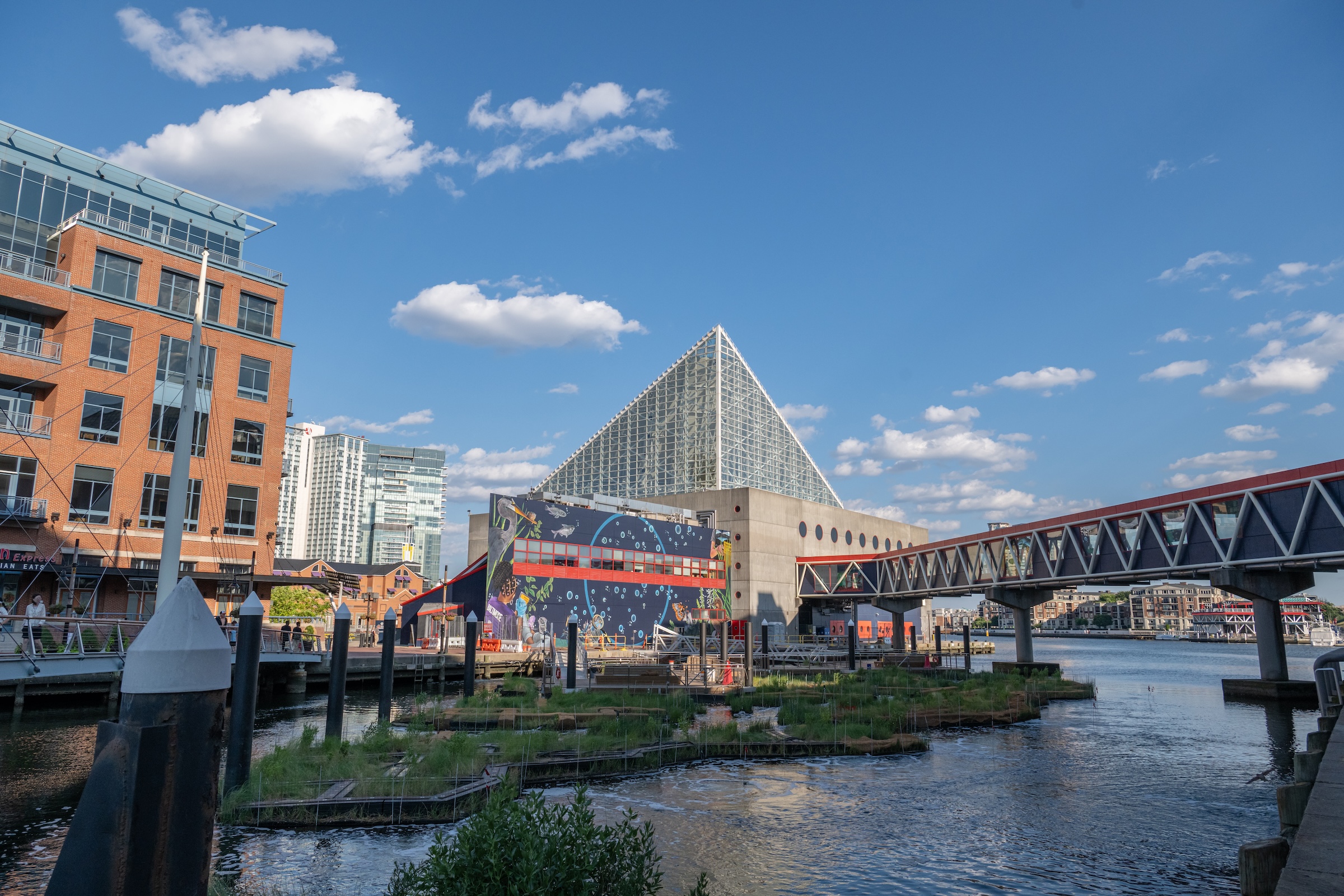
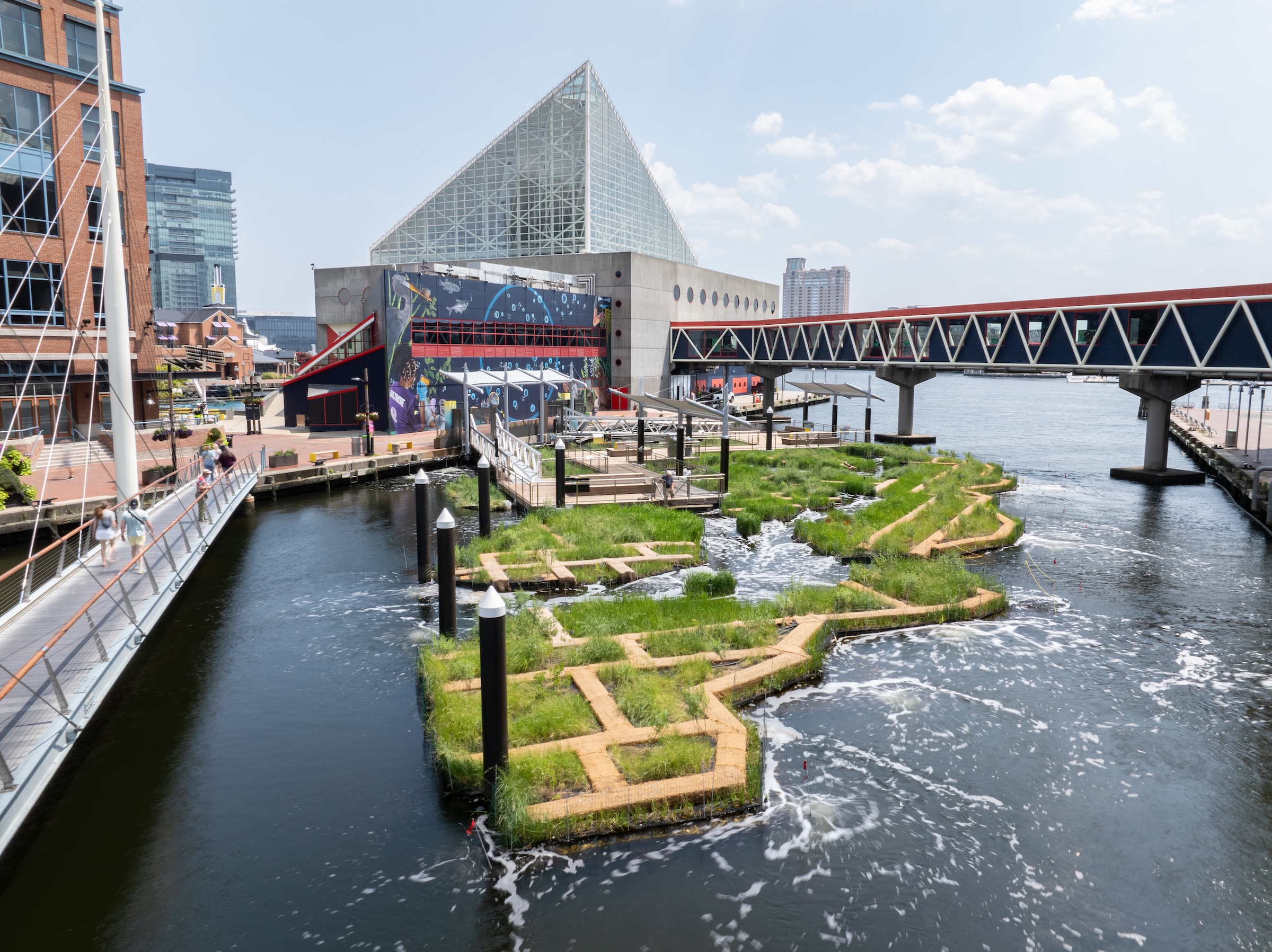
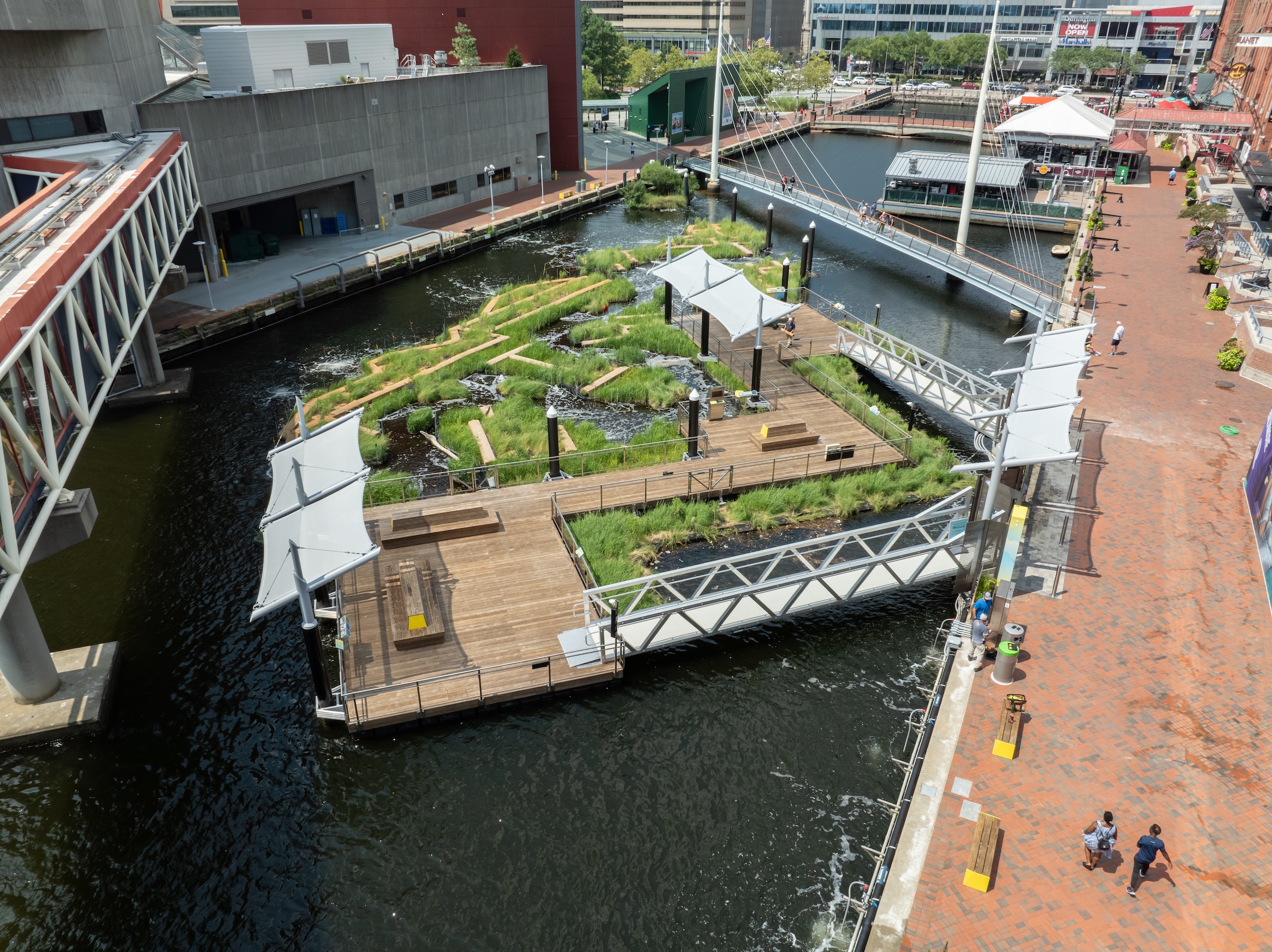
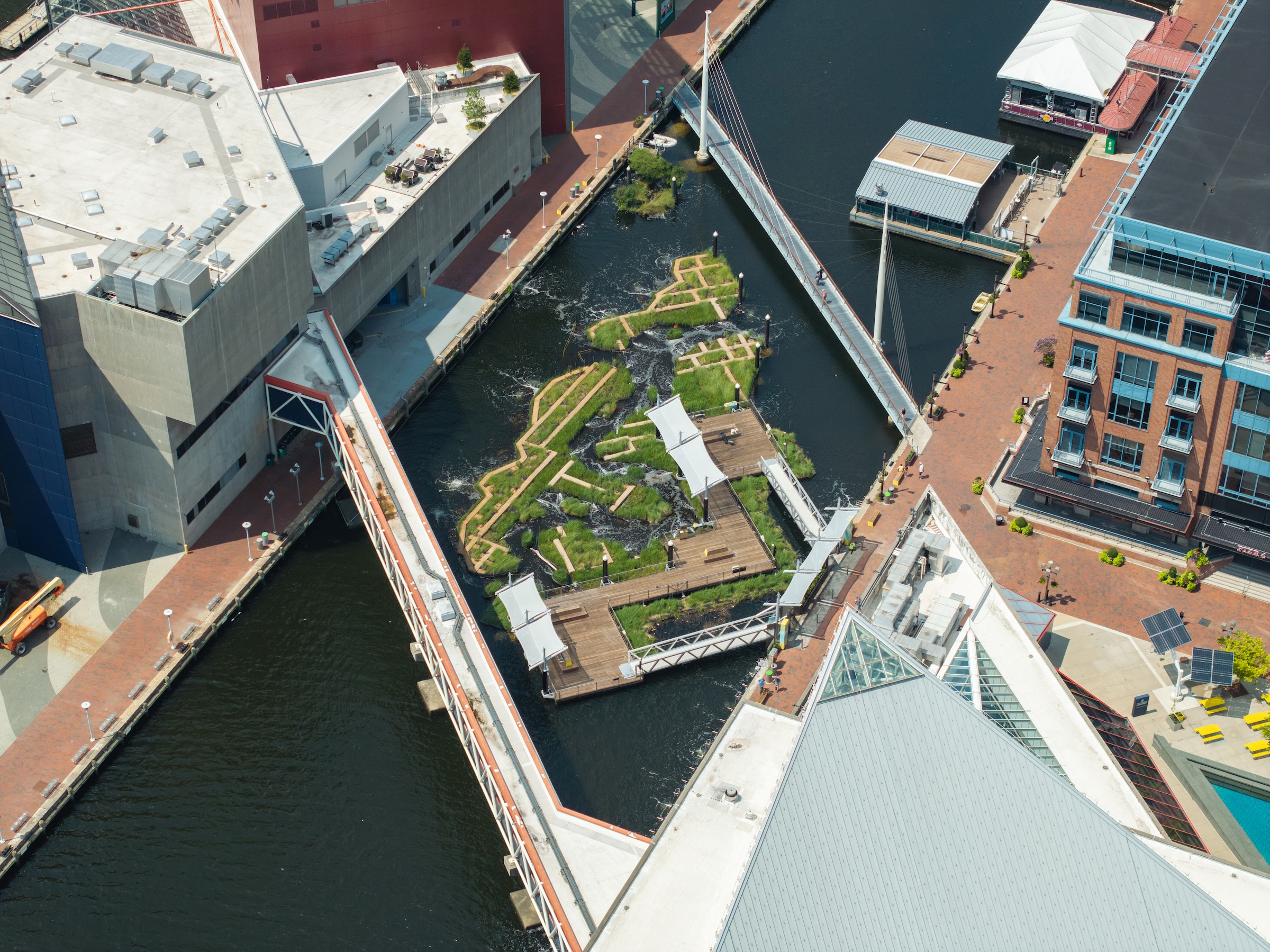
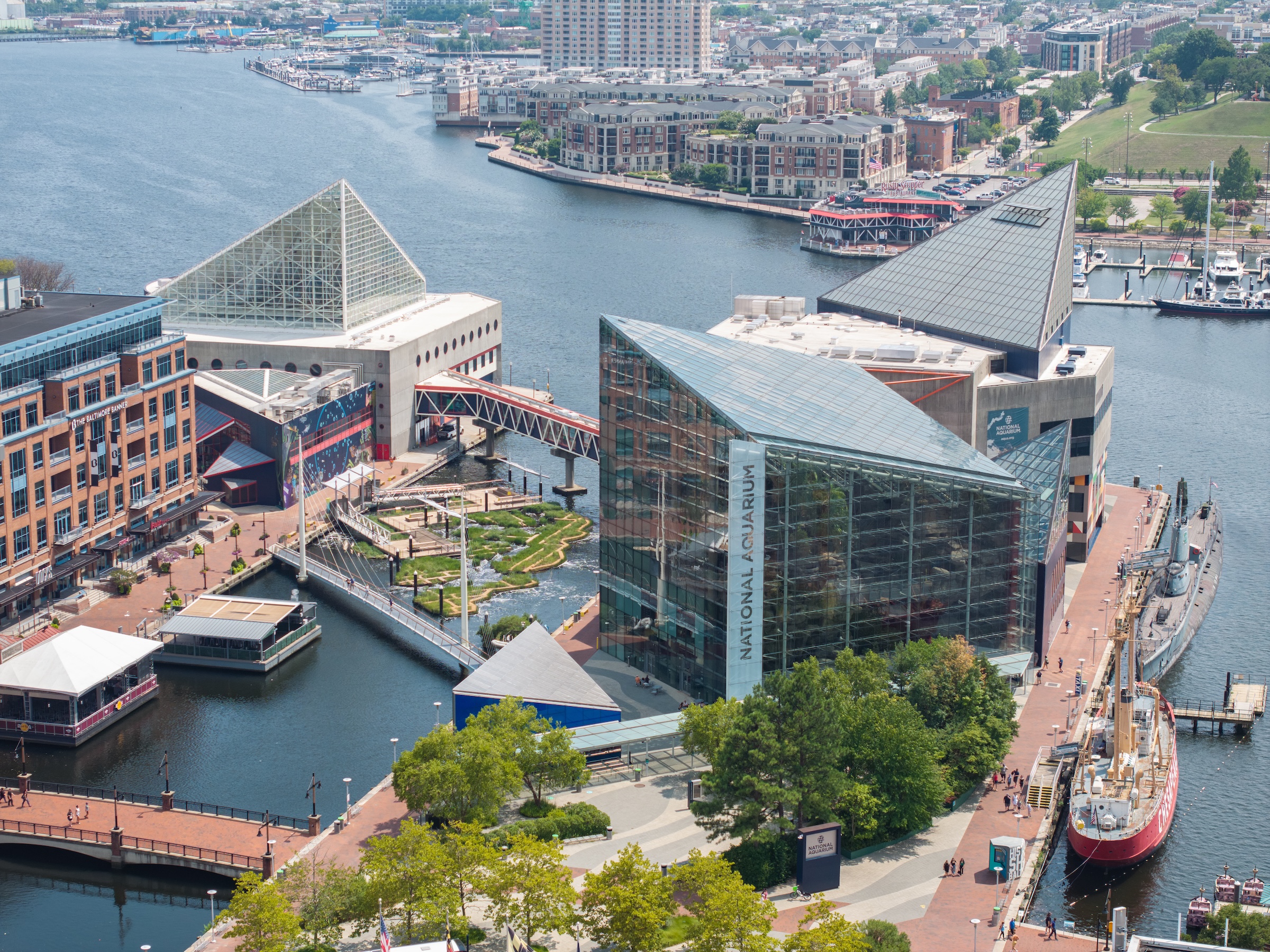
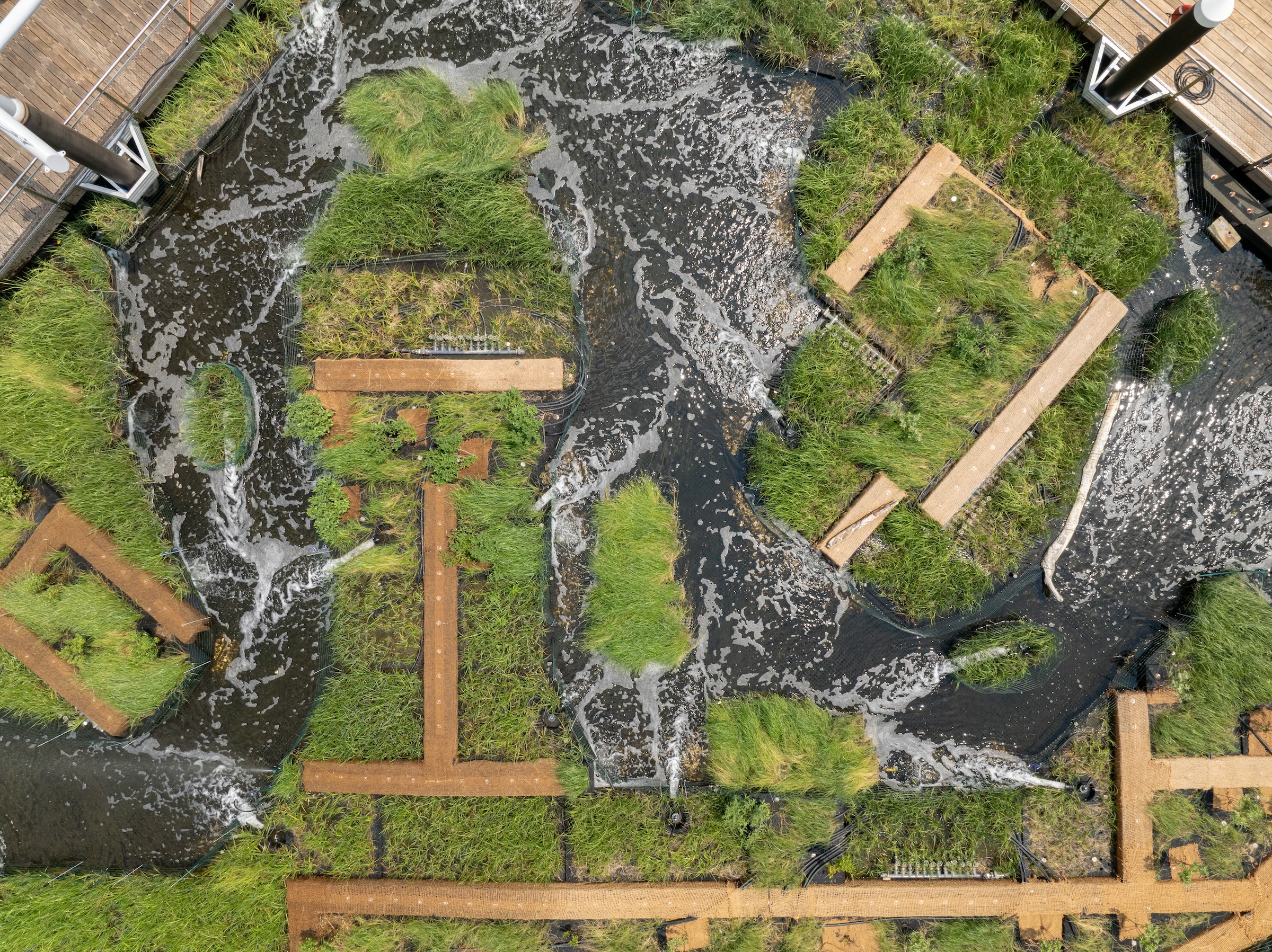
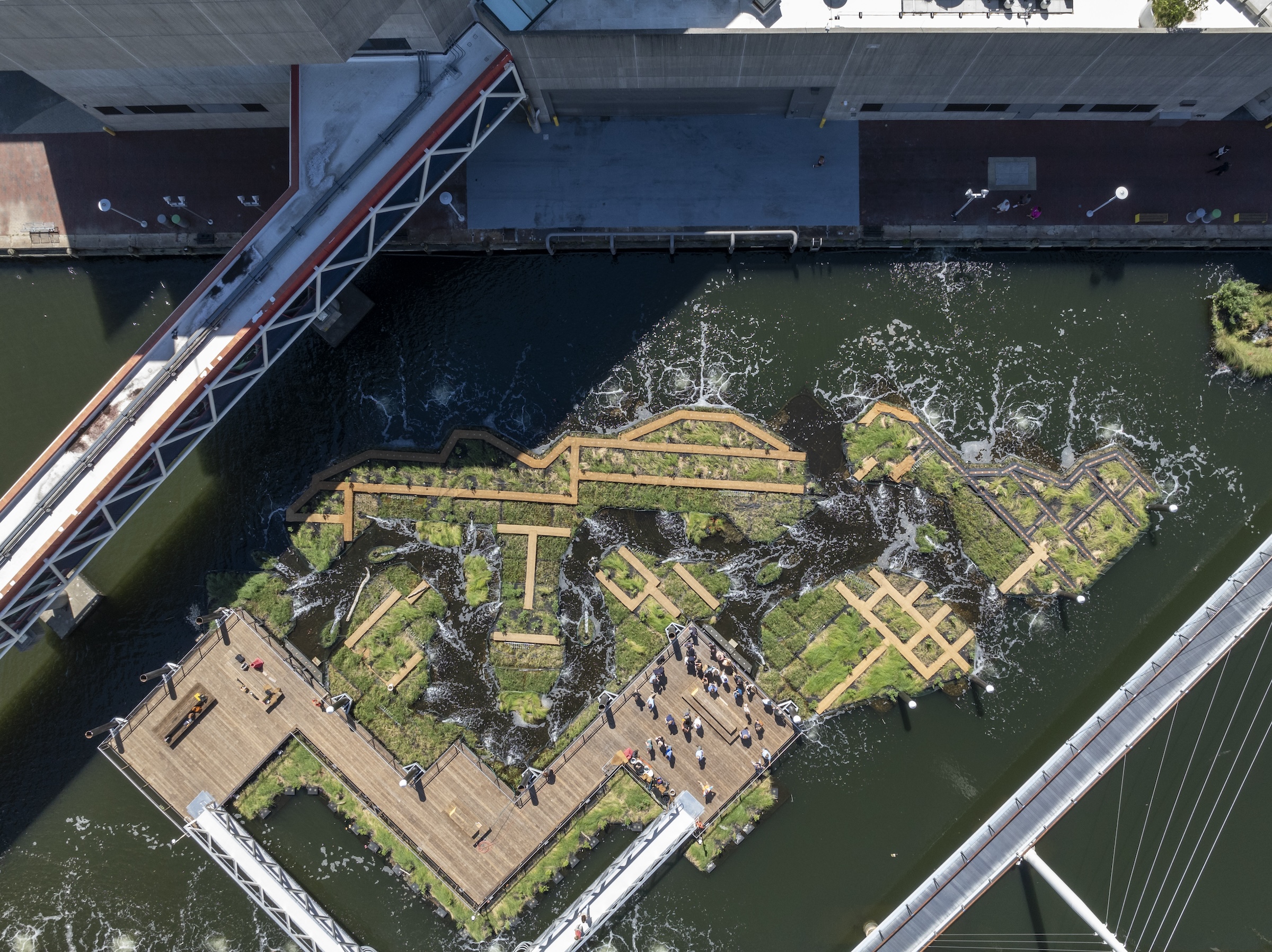
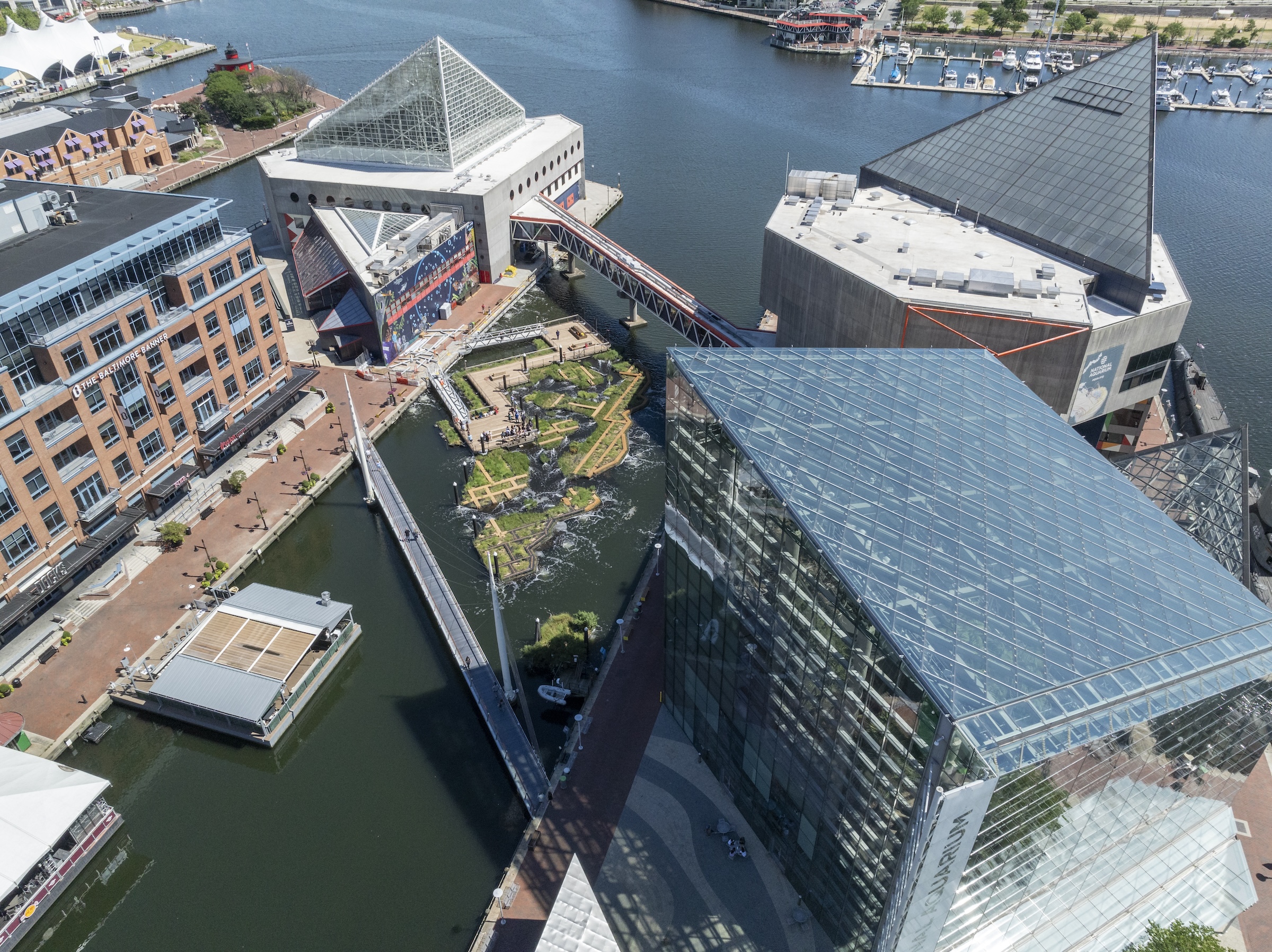
Related Stories
Libraries | Mar 26, 2023
An abandoned T.J. Maxx is transformed into a new public library in Cincinnati
What was once an abandoned T.J. Maxx store in a shopping center is now a vibrant, inviting public library. The Cincinnati & Hamilton County Public Library (CHPL) has transformed the ghost store into the new Deer Park Library, designed by GBBN.
Performing Arts Centers | Mar 9, 2023
Two performing arts centers expand New York’s cultural cachet
A performing arts center under construction and the adaptive reuse for another center emphasize flexibility.
Libraries | Feb 26, 2023
A $17 million public library in California replaces one that was damaged in a 2010 earthquake
California’s El Centro community, about two hours east of San Diego, recently opened a new $17 million public library. With design by Ferguson Pape Baldwin Architects and engineering services by Latitude 33 Planning & Engineering, the 19,811-sf building replaces the previous library, which was built in the early 1900s, damaged by a 7.2 earthquake that struck Baja California in 2010, and demolished in 2016.
Museums | Feb 22, 2023
David Chipperfield's 'subterranean' design wins competition for National Archaeological Museum in Athens
Berlin-based David Chipperfield Architects was selected as the winner of the design competition for the new National Archaeological Museum in Athens. The project will modernize and expand the original neoclassical museum designed by Ludwig Lange and Ernst Ziller (1866-1874) with new spaces that follow the existing topography of the site. It will add approximately 20,000 sm of space to the existing museum, as well as a rooftop park that will be open to the public.
Museums | Feb 17, 2023
First Americans Museum uses design metaphors of natural elements to honor native worldview
First Americans Museum (FAM) in Oklahoma City honors the 39 tribes in Oklahoma today, reflecting their history through design metaphors of nature’s elements of earth, wind, water, and fire. The design concept includes multiple circles suggested by arcs, reflecting the native tradition of a circular worldview that encompasses the cycle of life, the seasons, and the rotation of the earth.
Giants 400 | Feb 9, 2023
New Giants 400 download: Get the complete at-a-glance 2022 Giants 400 rankings in Excel
See how your architecture, engineering, or construction firm stacks up against the nation's AEC Giants. For more than 45 years, the editors of Building Design+Construction have surveyed the largest AEC firms in the U.S./Canada to create the annual Giants 400 report. This year, a record 519 firms participated in the Giants 400 report. The final report includes 137 rankings across 25 building sectors and specialty categories.
Giants 400 | Feb 6, 2023
2022 Reconstruction Sector Giants: Top architecture, engineering, and construction firms in the U.S. building reconstruction and renovation sector
Gensler, Stantec, IPS, Alfa Tech, STO Building Group, and Turner Construction top BD+C's rankings of the nation's largest reconstruction sector architecture, engineering, and construction firms, as reported in the 2022 Giants 400 Report.
Giants 400 | Feb 6, 2023
2022 Religious Sector Giants: Top architecture, engineering, and construction firms in the U.S. religious facility construction sector
HOK, Parkhill, KPFF, Shawmut Design and Construction, and Wiss, Janney, Elstner head BD+C's rankings of the nation's largest religious facility sector architecture, engineering, and construction firms, as reported in the 2022 Giants 400 Report.
Steel Buildings | Feb 3, 2023
Top 10 structural steel building projects for 2023
A Mies van der Rohe-designed art and architecture school at Indiana University and Morphosis Architects' Orange County Museum of Art in Costa Mesa, Calif., are among 10 projects to win IDEAS² Awards from the American Institute of Steel Construction.
Giants 400 | Feb 1, 2023
2022 Cultural Facilities Giants: Top architecture, engineering, and construction firms in the U.S. cultural facilities sector
Populous, DLR Group, KPFF, Arup, and Turner Construction head BD+C's rankings of the nation's largest cultural facilities sector architecture, engineering, and construction firms, as reported in the 2022 Giants 400 Report. Building types include museums, public libraries, performing arts centers, and concert venues.


